International Migrants Day: Raphael Galleh
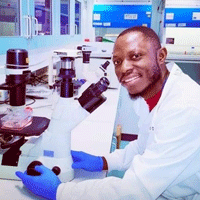
Could you tell us a bit more about yourself?
I am Dr Raphael Peter Galleh, an alumnus of the University of Sheffield, UK. My research focuses on host-pathogen interactions and how their activities modulate host immune responses as a route for the development of novel antimicrobials. I have also served as the Early Career (EC) Forum Representative for the Scientific Conferences Panel at the Society.
It’s International Migrants Day on 18 December; why do you think it’s important to highlight this day?
It is important to highlight this day because amongst other reasons, it shows that our contributions at different levels and sectors here in the UK are appreciated. This day will also aid in us migrants feeling, important, recognised and special.
You’re originally from Nigeria, could you tell us about your experience of moving to the UK to study?
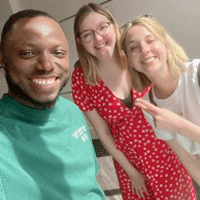
When I first moved to the UK, I experienced culture shock because I lived a communal lifestyle back home in Nigeria. However, as time passed, I have come to make friends and found people in the UK to be welcoming. I must admit that I have found a home away from home whilst being here.
Have there been any specific challenges you’ve faced in academia due to being a migrant?
Of course, there are challenges that migrants in academia face ranging from adapting to a different system of teaching and learning environment, to understanding how things are done in another country. Additionally, financial challenges (because of the 20 hours per week time limit for international students to work) also impacted me, especially considering the skyrocketing cost of living in the UK, with little or no assistance coming from home.
Have you experienced any bias or prejudice in academia as a result of being a migrant?
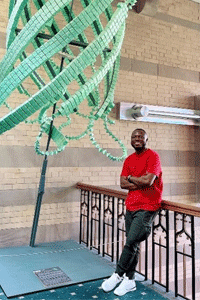
There was not any outright prejudice against me however, there is this feeling that one gets of not being ‘good enough’ when compared to home (UK) students. As an international student, I had to work twice as hard as my counterparts in order to prove myself and, even then, I still felt like my efforts were looked down on. Additionally, getting a job in academia as a migrant is incredibly difficult (at least speaking for myself).
What advice would you give to someone considering moving to another country to study or work in science?
My advice would be to expect culture shock, prepare for the worst while expecting the best; work hard but smartly. Such a person should endeavour to join societies, volunteer to help at science workshops and make sure to network with others in their field. Lastly, try to enjoy the moment, have fun and have a life outside academia (don’t be a laboratory mouse! 🐁).
Do you have any role models, if so, who?
Yes, my role model is my elder brother Justin Peter Galleh, who is a Catholic priest.
What has been the highlight of your career so far?
My highlight would be my ability to network with others at seminars and conferences but, more importantly, my ability to get involved with the Society both as a member, Executive member of the EC Forum and an Editorial Board member of Microbiology Today, which is the flagship magazine of the Society.
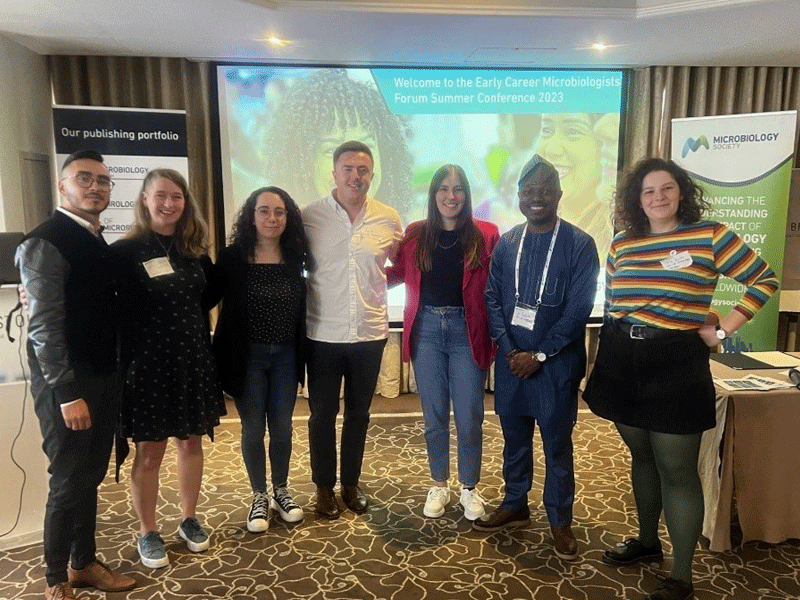
What do you hope to achieve in your career in the future?
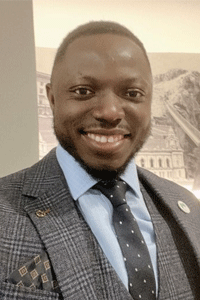
I hope as a Champion of the Society to promote the science of microbiology among undergraduate and postgraduate students as well as in the community. In the future, I hope to also become a renowned Professor of microbiology.
Could you tell us why you decided to join the Society and become a Committee/Board member and Champion?
My passion for microbiology and quest for networking with like-minded individuals are among the reasons I joined the Society. Becoming a Champion is born out of my passion for promoting the science of microbiology and interestingly, the Society is also committed to this cause.
To find out more about getting involved in various Society activities, take a look at the Get Involved section of our website.
